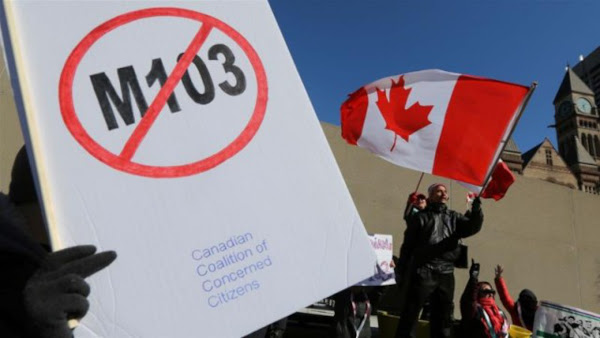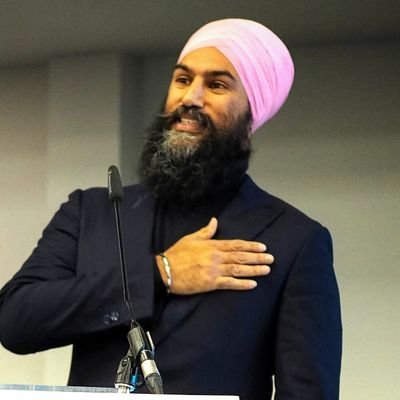| Forwarded this email? Subscribe here for more |
Grave Error on Alleged Mass Graves in Canada
Genocide in Canada?
| Anthony James Hall May 15 |

Tornados of controversy are swirling around the subject of mass graves in Canada and Gaza. Mass graves in Gaza were created along with the Israeli occupation and destruction of hospitals in Gaza. These grave sites are being dug up between rounds of Israeli bombing of Palestinian civilians. The evidence of mutilated humans coming out of Gaza’s mass graves have reportedly contained evidence of organ removal, handcuffing of doctors and patients, as well as point-blank executions including shots to the head.
https://www.vox.com/world-politics/24140794/gaza-nasser-hospitals-al-shifa-graves-idf-hamas
Looking out at the World from Canada is a reader-supported publication. To receive new posts and support my work, consider becoming a free or paid subscriber.
The discovery of mass graves is often seen as a hallmark that acts of genocide have occurred. While the association of mass graves with genocide is virtually irrefutable in Gaza, the same is certainly not the case in Canada. The discussion in Canada about the supposed discovery of unmarked mass graves adjacent to Christian residential schools is just now heating up.
From the late 1800s until the 1970s these federally-funded institutions were a core institution in providing education to Indian students. Issues concerning the provision of education to Indian groups often figured prominently in the Crown-Aboriginal treaty negotiations with Indian groups east of the Pacific watershed. To this day, this watershed marks much of the border of British Columbia with the rest of Canada.
The claims concerning the discovery of unmarked graves adjacent to Indian residential schools have been accepted as established fact by the government of Canada and much of the media since 2021. The story was quickly absorbed and adopted by the government of Justin Trudeau. In 2022 was adopted by Parliament without investigation as if it was a proven fact.
These claims are being subjected to vigorous scrutiny and a concerted effort of debunking. This project is being advanced by a formidable group of academics, journalists, retired judges and such. The volume is entitled Grave Error; How the Media Misled Us (and the Truth About Residential Schools)

Before and After Pictures were a staple of Indian Residential Schools in Canada and the United States.The Idea was to illustrate the success of a “civilizing” process.
The Forward to Grave Error is written by the legendary neocon elder, Conrad Black. Black is the former Zionist media mogul and prison inmate who some see with justification as an authentic embodiment of a renaissance man. Besides making business history with his edgy (too edgy?) handling of Hollinger Inc., Black has written many important history books. I remember when I was working on my Ph.D. in Canadian history at the University of Toronto in the late 1970s that Black’s biography of former Quebec Premier, Maurice Duplessis, was required reading.

The co-editors of Grave Error are C.P. Champion and Tom Flanagan. Professor Flanagan rivals the importance of Conrad Black in terms of the mark he has made for better or worse on Canadian history. Flanagan was at the core of the transformation of the Progressive Conservative Party of Canada into the Conservative Party of Canada. The iconic leader of the CP was Stephen Harper, the core person in one of the few Canadian governments not dominated by Laurentian elites.

Flanagan took hold of the Social Credit legacy of Alberta that came to be embodied in Preston Manning’s Reform Party. Flanagan and Manning teamed up. Coming in from the edges was Torontonian Stephen Harper. By performing well as a student in Flanagan’s circle, Harper was successful in his quest to present himself as a credible Albertan politician.
Flanagan mixed the Manning heritage with Reagan-Thatcheresque enthusiasms of his circle of students who pretty much saw their prof as the rock star of the Texas North University in Alberta’s rising oil and gas metropolis. Among the Flanagan devotees were Harper, Ezra Levant, and the current Alberta Premier, Danielle Smith.
In the 1990s when I was a member of the Native American Studies Department at the University of Lethbridge, I saw Tom Flanagan as something of a nemesis. This American political scientist was one of the the original hires in 1968 at the nascent University of Calgary. In seeking to fit into his new academic home, Prof. Flanagan chose as his first Canadian subject the life and times of Metis Rebel Leader Louis Riel. Did Prof. Flanagan picture himself as the ring leader of an Alberta rebellion in the making?
Flanagan built on this base to become sufficiently expert on Aboriginal Affairs in Canada that he was able to hire himself out to federal agencies in order to give advice and to perform as an expert witness in court. I saw it then and see it now, Prof Flanagan’s expertise lay in directing judges how to undermining the exercise of Aboriginal rights as defined in their dubious rulings.
Regardless of my view of these matters, this aspect of Flanagan’s career has put him in a good position to intervene with insight into the growing furor driven by the supposed discovery of unmarked mass graves adjacent to Indian residential schools.
Thus it is that Black and Flanagan, both heavy hitters, have joined forces with a high-powered team of devoted writers and thinkers. Their shared aim is to say enough is enough to what they see as woke opportunists.
It is well known that Justin Trudeau tends to be especially generous with his patronage dollars to those who attach themselves to his agendas for First Nations peoples. Trudeau inherits a long Liberal tradition of using large concentrations of money to keep hand-picked leaders in partisan line with Liberal policies.
Not surprisingly, Trudeau did not do his homework as he has latched onto yet another divisive boondoggle to float his “post-national” contention that Canada is a genocidal country that should be enwrapped asap into more globalist webs of conniving intrigues. Of course in my view neither Black nor Flanagan have been exempt from implicating Canada in their own forms of conniving globalist intrigues.
This background helps explain how it is that a seemingly obscure book on an seemingly narrow subject is suddenly selling lots of copies in spite of it being banned here and there. As far as I know there hasn’t been a ritual book burning yet but the volume has definitely been removed from several libraries.
In the BC town of Quesnel, just looking at Grave Error was made to seem in April like an act of heresy to be punished by spurning, economic boycott and various forms of deplatforming. As in many small communities throughout Canada, Quesnel businesses depend on the ample purchasing power of many First Nations people in the region.
Frances Widdowson attended the meeting with the intention of explaining her own essay, “Billy Remembers.” Even before she made the long drive from her home in Calgary to Quesnel, she was interrogated by a CBC journalist Jordan Tucker, a person who embodies the transcendental character of the Liberal government’s state broadcaster these days.
The Transcendent CBC Journalist, Jordan Tucker
 | Interview with Jordan Tucker (she/her) by Frances Widdowson Frances Widdowson |
It seems Dr. Widdowson has been appointed by some overseeing committee of high wokedom as the main embodiment of a new type of heresy designated as a “residential school denialism” by those in and around the Canadian version of South Africa’s Truth and Reconciliation Investigation. Dr. Widdowson long wrangled with her former employer at Mount Royal because her discourse was allegedly not in line with the College’s policy of “Indigenization.”
In February of 2023 the then-President of the University of Lethbridge, Dr. Mike Mahon, gave the green light to silence Dr. Widdowson by overwhelming her scheduled talk with well-organized drumming, chanting and electric guitar screeching. The object of this attack on free speech and open debate was to block her capacity of making herself heard.

Many in Alberta and beyond saw this display as a very powerful symbol of the DEI intolerance that is replacing independent thought and articulation with group think in increasingly authoritarian universities throughout the West. As a result of the extension of the debacle in Gaza to sharp divides on university campuses, this pattern of sacrificing to large donors of control over curriculum and faculty staffing is being put on full display by many prominent IVY League schools in the USA.
I agree with the authors in Grave Error that the existence of unmarked mass graves adjacent to Indian residential schools have not been proven. The great weight of evidence points against the conclusions that arose first from a press release in May of 2021. The release came from Rosanne Casimir, Chief of the Tk’emlúps te Secwepemc (Kamloops Indian Band). Without presenting credible evidence, Chief Casimir made the startling claim that an unmarked mass grave containing 215 bodies had been discovered in an apple orchard beside Kamloops Indian residential school.
I agree for the most part with Grave Error’s authors. They maintain that a solid evidentiary basis has not been established to prove the new thesis that mass murder and mass graves constitute an integral part of the history of Indian residential schools in Canada.
I do not agree, however, that these findings preclude the need to look at the possible role of various forms of genocidal activity in the genesis of northern North America from pre-Columbian times to the Canada that exists today. I find the conclusion that because certain claims about the existence of mass graves attending Indian residential schools have been disproven, the possibility of genocidal expressions in Canada’s history need never come up again.
I think it ill-advised to declare that all of Canadian history is devoid of genocide before and after the UN’s creation of the Genocide Convention in 1948. Canadian history does not exist in an isolated void. I have repeatedly put forward the view that the entire Western Hemisphere has been the site since 1492 of an inter-generational genocide that can be pictured as a single monumental event whose commemoration might be marked by a different kind of holocaust memorial.
For now, however, I’ll leave it at that. I’ll simply add that Dr. Widdowson and I are working together these days. We are engaged in a case study of the assault on free speech and open debate at University of Lethbridge, where I taught for 26 years. See the announcement of our upcoming meeting on the matter in the addendum below.
______________
Addendum

10 May, 2024
Dear Friends, Colleagues and Associates;Above is the poster for an important upcoming public event on the afternoon of Saturday May 25 at the main branch of the Lethbridge Public Library. Many of you will remember when Dr. Frances Widdowson was overwhelmed by chanting, drumming and the screech on an electric guitar. The object of the ruckus was to prevent the speaker from delivering a public presentation in the Atrium of the University of Lethbridge. The censorship action proved to be a “success.”
Dr. Widdowson was silenced and those who came to hear her talk were deprived of her articulation. Certain faculty members had decided Frances Widdowson was afflicted with a malady they labelled “residential school denialism.”
Some faculty members decided to act on this judgment. For their students, these faculty members painted a picture of Dr. Widdowson as an embodiment of a constituency they identified as hostile to the idea that all residential schools at all times should be equated with genocide.
Disgruntled faculty and others pressured U of L President, Dr. Mike Mahon, to cancel Dr. Widdowson’s lecture after he had already announced that his Office approved of her talk. Some interpret what happened as a cave in by Dr. Mahon to political pressure. He ordered that a speaker on campus should be cancelled because she was the bearer of interpretations that some faculty and students wanted to censor. The rest, as they say, is history.
The key point in this matter is not that one side or the other is right or wrong. Individuals especially in the hallowed Halls of Academia have a right and sometimes even a responsibility to decide such matters for themselves. The key point is that academics must be able to research, argue and articulate issues in an environment of protected free speech and academic freedom regardless of the prevailing group think. Certainly it is not the role of academic administrators to jump in arbitrarily by making themselves instant experts in whatever academic debate they want to dominate and/or disrupt.
Dr. Widdowson has written academic essays and books in and around the topic of the history of Indian education in Canada. Whether one agrees with her views or not, it was wrong to have tried to silence her at an Alberta University. I attended the organized shutdown of her talk. In my view and in that of many other people I have since met and talked to about what happened, the shutdown of Dr. Widdowson in February of 2023 was not a proud moment. It was a very troubling occurrence in the history of the institution of higher learning where I taught from 1990 to 2016.
I moved to Lethbridge in 1990 to be Associate Professor of Native American Studies. In the early weeks of 2016 this tenured full professor was abruptly suspended without pay completely outside the rules of the Board’s collective agreement with the Faculty Association. Then in 2017 the matter went to court in the Lethbridge Court of (then) Queen’s Bench.
By court order the judge ruled that I should be reinstated into my academic position at the U of L. As I plan to discuss, there is every reason that the Board’s objective in trying to deplatform me was to silence my interpretations because my views went contrary to the agenda of a very rich and powerful lobby. I would still like to know how this lobby gained such a tight grip on the policies and actions of the administration of the University administration.
As the commentator in Frances’ forthcoming presentation on 25 May, I’m sure I will disagree with her on many points. Agreeing to disagree is a vital attribute of healthy academic life. But trying to shut down those with whom one disagrees, undermines the entirety of the whole academic project that is supposed to be a fair and balanced meritocracy.
When I met Frances after the event where her talk was shut down, we of course compared notes about our treatment at the University of Lethbridge. Eventually we came up with the idea of mounting the initiative we started earlier this year. In due course, as this process unfolds I intend to talk about my own experiences with the process of being deplatformed in ways that include many elements outside the set of facts outlined above.
I never did get back into the classroom. In 2018 I decided to retire. I did retire as a full professor in good standing. I gained the new title of Professor Emeritus. I am announcing here that I am henceforth acting in my capacity as a Professor Emeritus of the University of Lethbridge in the remaining part of the process that Frances and I have mounted. I think my taking on this responsibility in unusual times and under unusual circumstances is entirely consistent with the duties of an individual carrying the title of Emeritus Professor.
As I see it, I shall be speaking and acting in this process from within the U of L’s faculty. I have devoted some of the best years and professional efforts of my life to my academic endeavours at the University of Lethbridge. I would like to see the institution thrive and prosper.
As a senior faculty member I want to help in the process of making some suggestions that might assist our school in getting back on track. A University simply cannot fulfil a mission to be a school of authentic higher learning without creating a sound foundation for the expression of unhindered speech and academic freedom.
Since retiring from teaching I have continued to involve myself in research and publication as well as in very active community involvement starting with the manufactured COVID crisis. The questions come up in my community work: Where are all the hundreds of University professors and why are they not contributing more actively to working through issues of immense import– life and death issues in, for instance, public health matters.
What kind of message does our university send when it shuts down, rather than encourages, the highlighting of a diversity of perspectives in public discourse in local, regional, national and global contexts? The community wants and deserves better than what we have seen from the University of Lethbridge in recent years.
In this context I am not making any claim about who is right or wrong in the matters we have recently faced and are facing. But in my view there is no doubt that the University of Lethbridge has become way too isolated and partisan in key aspects of the community life of this region.
Please consider attending the public event at the Lethbridge Public Library on Saturday May 25 at 2 pm.
Sincerely,
Dr. Tony Hall
Professor Emeritus,
University of Lethbridge




















